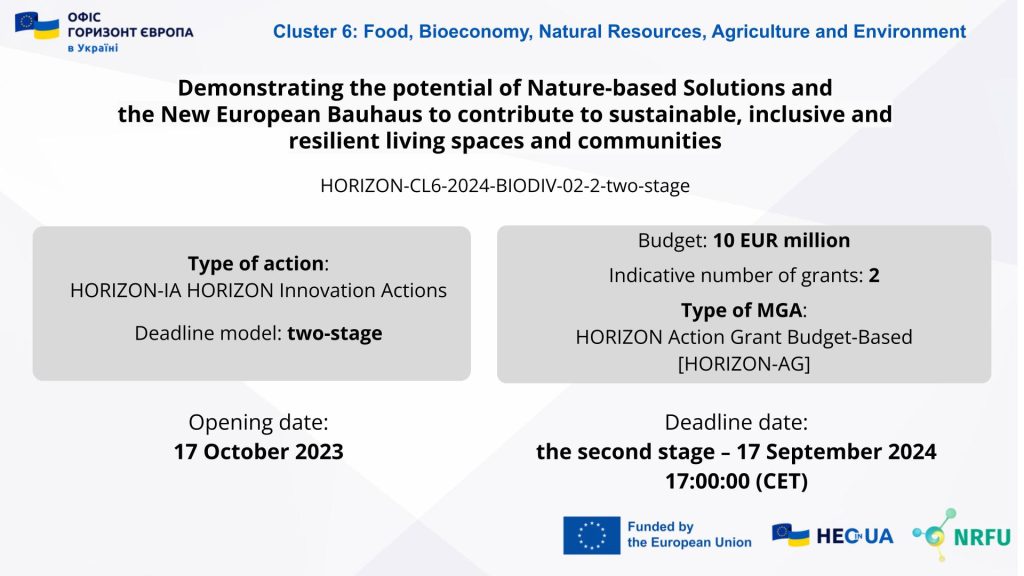Demonstrating the potential of Nature-based Solutions and the New European Bauhaus to contribute to sustainable, inclusive and resilient living spaces and communities (HORIZON-CL6-2024-BIODIV-02-2-two-stage)
Horizon Europe Office in Ukraine continues to inform that the second stage of calls in Cluster 6: Food, Bioeconomy, Natural Resources, Agriculture and Environment within Pillar II Global Challenges and European Industrial Competitiveness are available. Deadline for applications in the 2nd stage – September 17, 2024.
Demonstrating the potential of Nature-based Solutions and the New European Bauhaus to contribute to sustainable, inclusive and resilient living spaces and communities (HORIZON-CL6-2024-BIODIV-02-2-two-stage).
Expected Outcome:
In line with the European Green Deal priorities and the EU climate adaptation strategy, as well as the EU’s climate ambition for 2030 and 2050 and the EU biodiversity strategy for 2030, the successful proposals will support the development of Nature-based Solutions (NBS) contributing to the resilience and the sustainable, balanced and inclusive development of urban, peri-urban and rural areas.
The overall aim of this topic and associated R&I activities is to leverage the New European Bauhaus (NEB) core values of sustainability, inclusion and aesthetics in Nature-based Solutions (NBS), in light of a wider transformation to enable a more sustainable, inclusive and resilient society.
Project results are expected to contribute to all of following expected outcomes:
- A transdisciplinary integration of NBS and the NEB is demonstrated in different contexts, contributing to the transformative change needed to tackle the climate and biodiversity crises, and drawing on inclusiveness and the pluralities of values, knowledge, cultural diversity and cultural heritage.
- High quality, multifunctional, co-created public spaces that enhance sustainability, resilience and the well-being of communities, through the combination of NBS and the NEB, with digital, social and cultural innovation.
- Greater understanding of the links between NBS and the NEB and how to better make these two approaches compatible and integrated in places and buildings, landscapes, industrial systems, policies and communities.
- Communities benefit from the implementation of a new societal vision encompassing sustainability, resilience, health, well-being and inclusion, based on the demonstration of the combination of the NEB with NBS.
